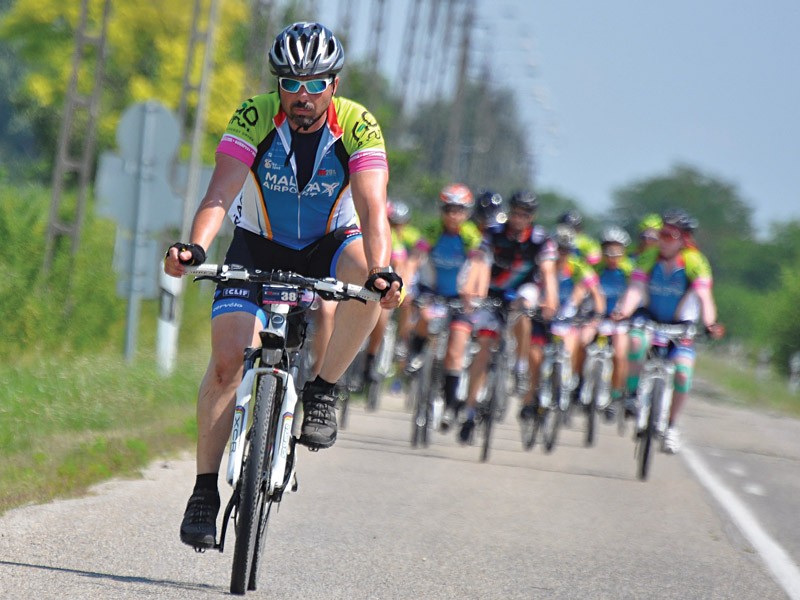Wilfred Kenely CEO, Research Trust (RIDT)
When two years ago a group of cyclists decided to raise funds for research in breast cancer, few thought that this was going to be the beginning of a new chapter in Maltese philanthropy. For the first time a group of people decided to raise money for a new cause in Malta that had never featured in the long list of established worthy projects. They raised €55,000—much more than their original target. The funds are financing a Ph.D. scholarship in breast cancer research through RIDT (the Research Trust of the University of Malta). The challenge was repeated in 2014 with even better results—€80,000, again going towards a second Ph.D. scholarship in the same area. ALIVE Charity Foundation has chosen cancer research as its objective, and has committed itself to keep this spirit going on a long-term basis.
Fuelled by its success and with ambitious targets in mind, for the 2015 challenge it has joined forces with another NGO, Puttinu Cares, to raise funds for research in cancers affecting children. The cycling challenge will cover over 1,000 km and will see 45 cyclists pedal through seven countries in Europe, starting from Liechtenstein in the Alps and ending in Sutton, UK, where Puttinu Cares has been offering support to sick children being treated there. The funds will be donated to the RIDT to be utilised in cancer research to benefit children.
Dr Pierre Schembri Wismayer from the Department of Anatomy has led a research team in cancer research at the University of Malta for several years. They focus on cell differentiation and the use of natural derivatives. ‘Once a cancer has spread, there are three things which can protect the body against cancer cells. These are viruses, certain chemicals found in blood, and the immune system.’ ‘The Department studies all of these ways to target cancers, primarily in young people and children. Differentiation therapy uses non-toxic chemicals to make cancer cells grow old and die. Cancer cells unfortunately have a youthful elixir that means they never stop dividing and growing. The therapy also uses safe viruses and the body’s own immune system to help attack a cancer which has spread and is unoperable’ explained Schembri Wismayer. His team will investigate brain and bone cancer which are common in children.
The initiative is also being supported by the Malta Community Chest Fund and by the President of the Republic. During her speech at the launch of this year’s challenge, H.E. Marie Louise Coleiro Preca appealed for society to support the ALIVE 2015 Challenge so that more home-grown research can be funded to benefit Maltese children and children worldwide. The ALIVE Charity Foundation is a living testimonial that research should be considered as a philanthropic cause. It has sent a clear signal that society is responding to our call and is putting its money in research through its generosity. This does not imply that the burden of research funding should be shouldered solely by society through its philanthropic endeavours. It remains primarily the role of governments to invest strongly in research. This investment will in turn contribute to the country’s economic development. Society should be there to supplement this investment, not to substitute it. •






Comments are closed for this article!